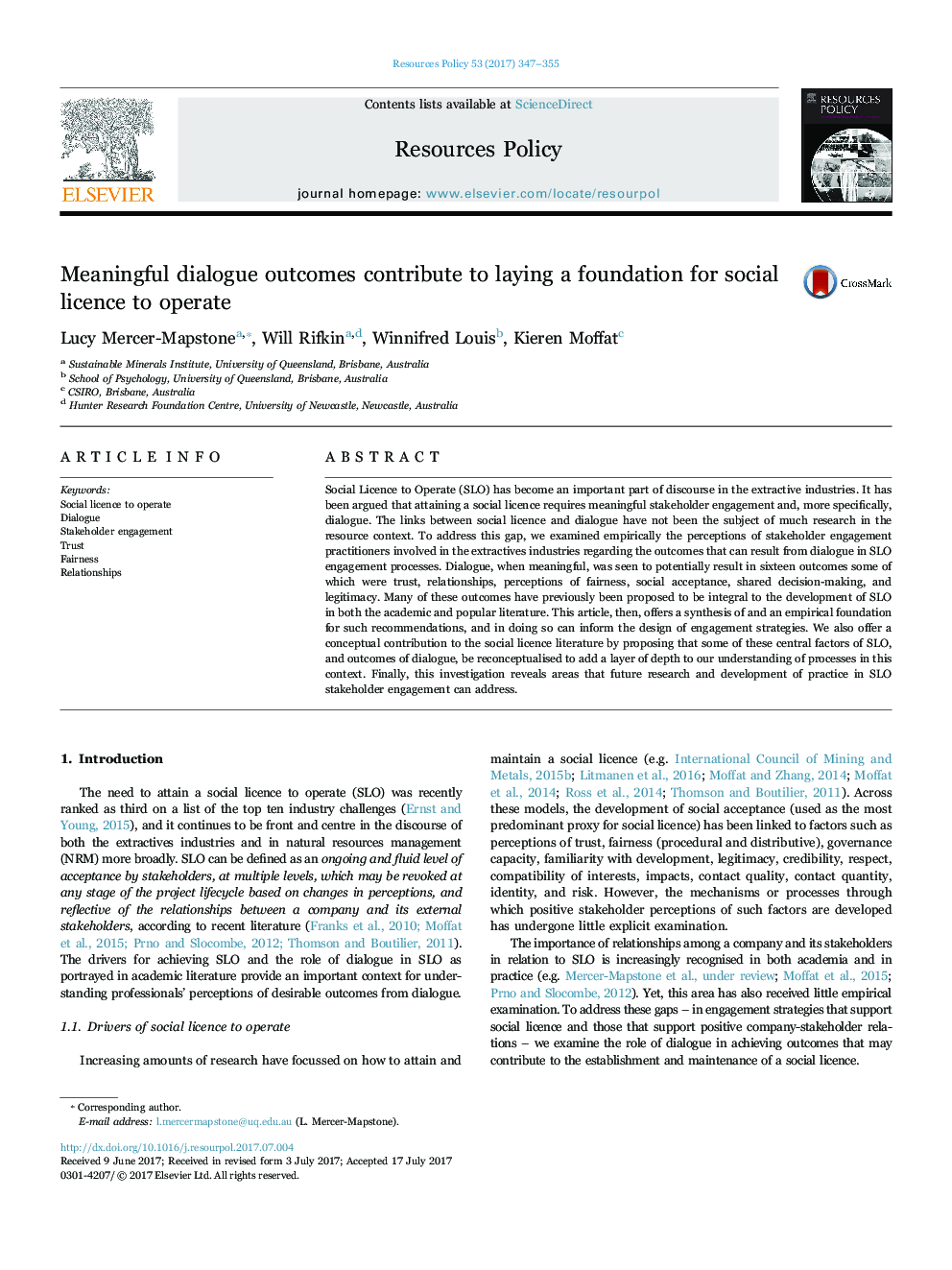| Article ID | Journal | Published Year | Pages | File Type |
|---|---|---|---|---|
| 5104174 | Resources Policy | 2017 | 9 Pages |
Abstract
Social Licence to Operate (SLO) has become an important part of discourse in the extractive industries. It has been argued that attaining a social licence requires meaningful stakeholder engagement and, more specifically, dialogue. The links between social licence and dialogue have not been the subject of much research in the resource context. To address this gap, we examined empirically the perceptions of stakeholder engagement practitioners involved in the extractives industries regarding the outcomes that can result from dialogue in SLO engagement processes. Dialogue, when meaningful, was seen to potentially result in sixteen outcomes some of which were trust, relationships, perceptions of fairness, social acceptance, shared decision-making, and legitimacy. Many of these outcomes have previously been proposed to be integral to the development of SLO in both the academic and popular literature. This article, then, offers a synthesis of and an empirical foundation for such recommendations, and in doing so can inform the design of engagement strategies. We also offer a conceptual contribution to the social licence literature by proposing that some of these central factors of SLO, and outcomes of dialogue, be reconceptualised to add a layer of depth to our understanding of processes in this context. Finally, this investigation reveals areas that future research and development of practice in SLO stakeholder engagement can address.
Related Topics
Physical Sciences and Engineering
Earth and Planetary Sciences
Economic Geology
Authors
Lucy Mercer-Mapstone, Will Rifkin, Winnifred Louis, Kieren Moffat,
